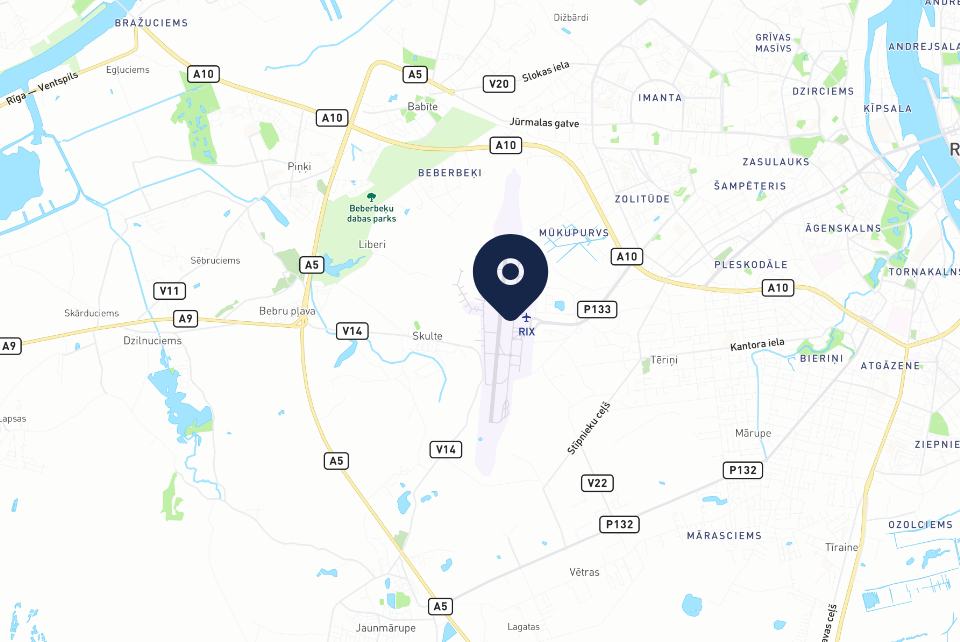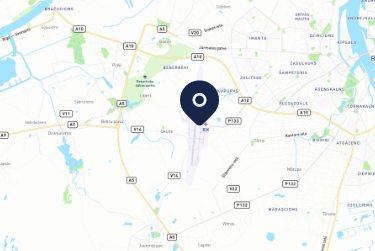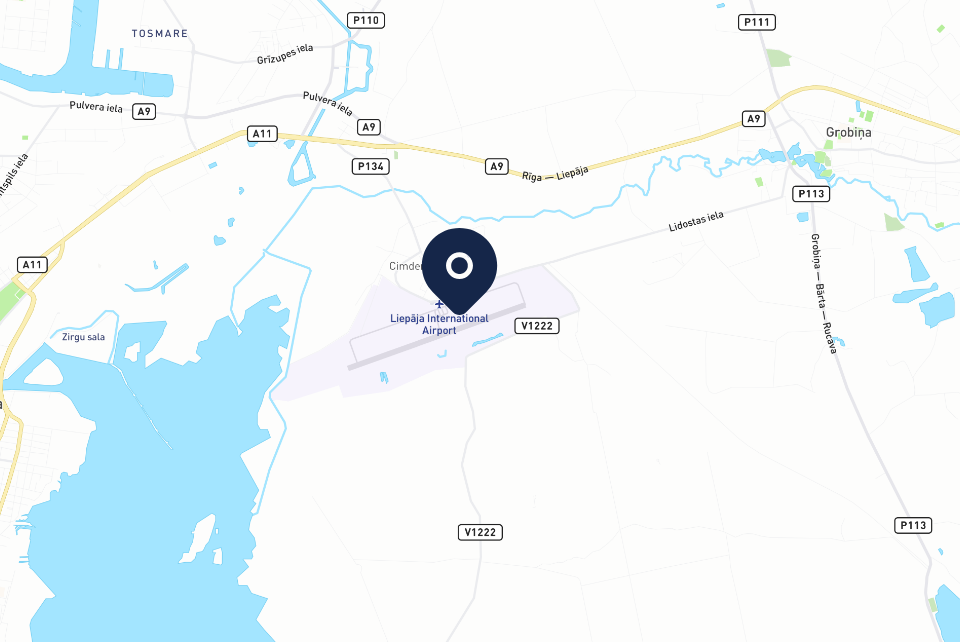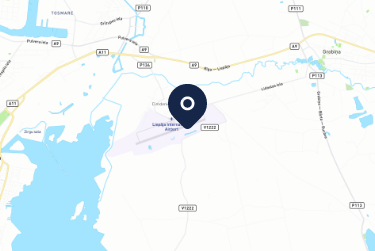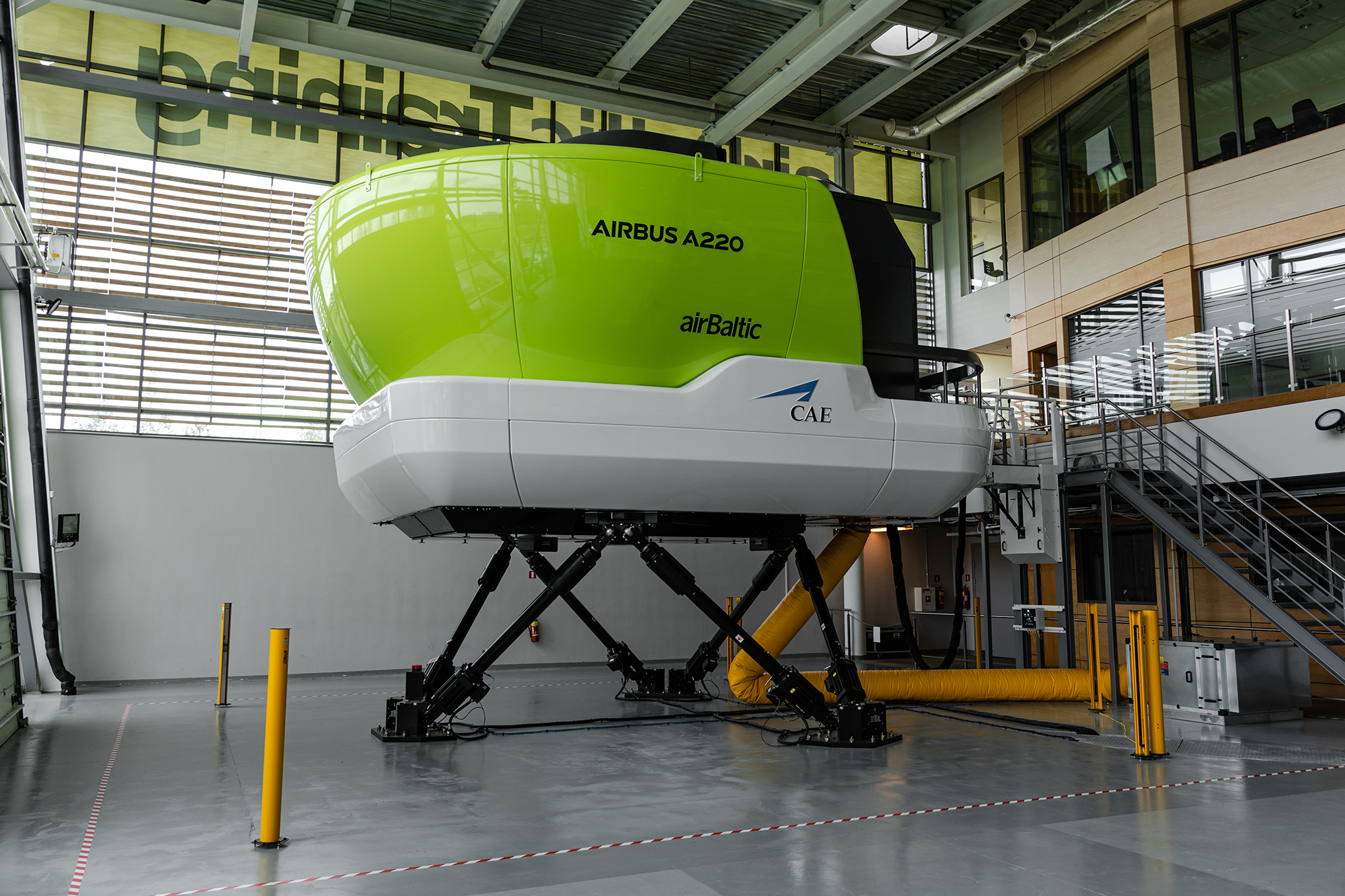
The Latvian national airline airBaltic is set to expand its training capabilities with the arrival of a second Airbus A220 full flight simulator later this year. Scheduled for delivery in the fourth quarter of 2024, the new simulator will significantly enhance the airline’s ability to train and maintain the qualifications of its growing number of pilots, supporting both the airline’s fleet expansion and the continued development of its Pilot Academy.
As airBaltic continues to expand, with 48 aircraft currently in operation and an additional 10 aircraft expected by 2025, the demand for pilot training has increased. With the addition of new aircraft, the number of pilots is also rising, making advanced training infrastructure essential. The second simulator is a vital investment to meet these needs.
Martin Gauss, CEO and President of airBaltic: “The addition of a second Airbus A220 simulator is a significant step forward in our continuous effort to provide world-class training for our pilots. As our fleet and operations grow, so does our commitment to ensuring the highest standards of safety, efficiency, and excellence in pilot training. This investment not only supports the future growth of airBaltic, but also strengthens our position as a key player in the global aviation industry.”
The new simulator will offer 6 000 hours of availability per year, with an optimal utilization target of 5 500 to 6 000 hours. This will include time allocated for both recurrent and initial training, as well as technical maintenance, which is crucial to ensure the simulator’s performance remains at the highest level.
In addition to supporting airBaltic’s expanding fleet, the new simulator will also provide advanced training opportunities for technical personnel and enhance the offerings of the airBaltic Pilot Academy, particularly in areas such as the Multi-Crew Cooperation (MCC) course. The availability of a second simulator will also allow airBaltic to rent out available slots to other airlines, further maximizing the use of this state-of-the-art facility.
With limited full flight simulators for the Airbus A220 in Northern Europe – only two, including airBaltic’s – this expansion solidifies airBaltic’s position as a leading training hub in the region. Other similar simulators in Europe are located in Germany, Switzerland, Italy, and France.
airBaltic soon will have two fully equipped simulators, qualified in accordance with latest EASA (European Aviation Safety Agency) issue 2 requirements, including best precision navigation PBN (performance-based navigation) and UPRT (upset prevention and recovery training) capabilities. Both are equipped with 60” Stroke Electric Motion System as well as the most modern visual system, consisting of four-megapixel LED Projector systems. The CAE7000XR Series FFS, equipped with the CAE Tropos™ 6000XR visual system for unprecedented realism, will serve the growing pilot training needs of airBaltic Training.
There are 136 active students at the airBaltic Pilot Academy at the moment. Most of them are from the Baltic countries, however, there are students also from other EU countries such as Denmark, Germany, France, Finland, Spain and Italy among others. Overall, more than 10% of airBaltic Pilot Academy students are female. As for now, 112 students, after graduating, have joined airBaltic.
More information about the Pilot Academy: www.pilotacademy.com.
airBaltic operates more than 130 routes from Riga, Tallinn, Vilnius, Tampere and, seasonally, Gran Canaria, offering connections to a wide range of destinations in the airline’s route network in Europe, the Middle East, North Africa, and the Caucasus region. A complete schedule of airBaltic flights and tickets are available on the company’s homepage at www.airbaltic.com
About airBaltic:
airBaltic (Air Baltic Corporation AS) is the leading airline in the Baltics and one of Europe’s fastest growing carriers. As a hybrid airline, it leverages the upsides of both traditional network and low-cost carriers. Through a network of more than 130 routes from Riga, Tallinn, Vilnius, Tampere and, seasonally, Gran Canaria, airBaltic connects the Baltics with over 70 destinations across Europe, the Middle East, North Africa, and the Caucasus.
Founded in 1995, today airBaltic operates one of Europe’s youngest fleets, consisting of 48 Airbus A220-300 aircraft, and employs over 2 600 professionals.
The company is majority-owned by the Latvian state, which holds a 97.97% stake, with the remaining 2.03% owned by private shareholders.
airBaltic’s commitment to excellence is recognized by numerous prestigious awards including the Best Airline in its region by Skytrax for three consecutive years. In 2022, the International Air Transport Association (IATA) recognized airBaltic with the Diversity and Inclusion Team Award, and in 2023, the company received the APEX Passenger Choice Award for Best Cabin Service in Europe. In 2024, the airline was awarded the PROS AI Innovator Award for leveraging AI to drive transformative outcomes and optimize operations.
